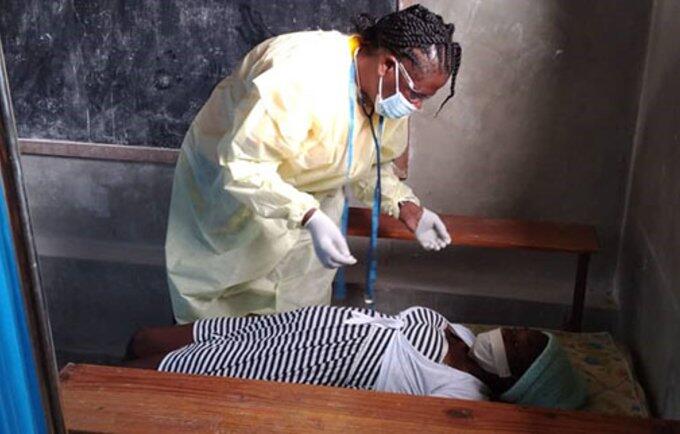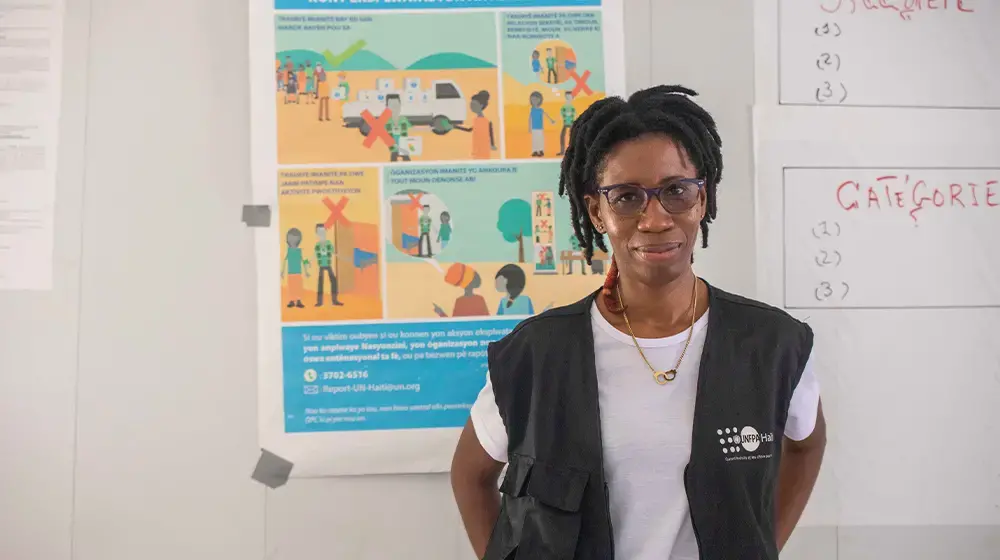Port-au-Prince, June 10, 2020 --- The Centers for Development and Health (CDS) - in cooperation with the North West Health Directorate (DSNO) - organized, from May 4 to 23, 2020, with UNFPA support, the United Nations Population Fund, 17 mobile clinics in very remote and disadvantaged areas of northwestern Haiti, while strictly respecting precautionary measures that can reduce the spread of COVID-19. Nearly 300 pregnant women and 500 lactating women were able to receive health care at these clinics.
Many of these women say they usually give birth at home and are not used to having regular prenatal care either. "If I had had the chance in the past to participate in one of these mobile outreach clinics, I could not have lost my babies," says Adeline, believing that they can really reduce maternal and newborn mortality in her community.
Since the arrival of the pandemic in Haiti, the fear of contamination with COVID-19 has been the basis of the closure of certain centers which offer antenatal and postnatal services to women who do not have the economic capacity to pay these services. This fact tends to worsen the situation of some women who, because of the drastic slowdown in the economic activities they undertake to earn a living, can no longer afford certain health services. This weakens the gains and risks favoring an increase in maternal mortality in Haiti.
This risk is in fact increasing with the drop in attendance at health institutions observed from the first confirmed cases of Covid-19. Haiti has the highest maternal mortality rate in the Caribbean region, or 529 deaths per 100,000 live births.
The “Saj Fanm pou Fanm” project (Midwife for women) with funding from the Canadian Government and the “CERF” Emergency Fund funded by the Office for the Coordination of Humanitarian Affairs (OCHA) help minimize these risks by facilitating services proximity to remote communities and increasing access to reproductive health care in the nine communes implementing these projects, which guarantees continuity of services, even during the health crisis caused by Covid-19.
Residing in Fond Ramier, in the commune of Chansolme, Adeline, of very precarious economic condition, is in her sixth pregnancy with five living children. In January 2020, she gave birth to triplets at home that did not survive.
"I had made only one prenatal visit when I was 2 months pregnant and I never set foot in a hospital center," says Adeline, adding that "it was like that for her previous pregnancies".
Adeline followed the advice of the health professionals who ran the Fond Ramier mobile clinic by adopting a family planning method.
During these mobile clinics, 155 tap buckets and 800 cloth masks were distributed as part of the prevention and protection measures against Covid-19.
CDS also carried out - in collaboration with local UNFPA partners in the fight to improve reproductive health - home and medical visits as well as meetings with birth attendants. The purpose of these visits was to increase the knowledge of pregnant women about the danger signs and what to do if they worsen. They also seek to sensitize them on the importance of hygiene measures concerning Covid-19, sensitize new mothers on the importance of post-natal consultations and provide medical care to the visited women (pregnant and parturient) if necessary.
By June 30, 2020, more than 4,000 pregnant women will benefit from these prenatal consultations. Breastfeeding women will have access to postnatal consultations and will be able to test for HIV / Syphilis, so that these women can access treatment and prevent transmission to their children. These mobile clinics will also help improve the knowledge of thousands of women in the North West about sexual and reproductive health, including family planning, while using the institutional referral system from the network of health institutions.





